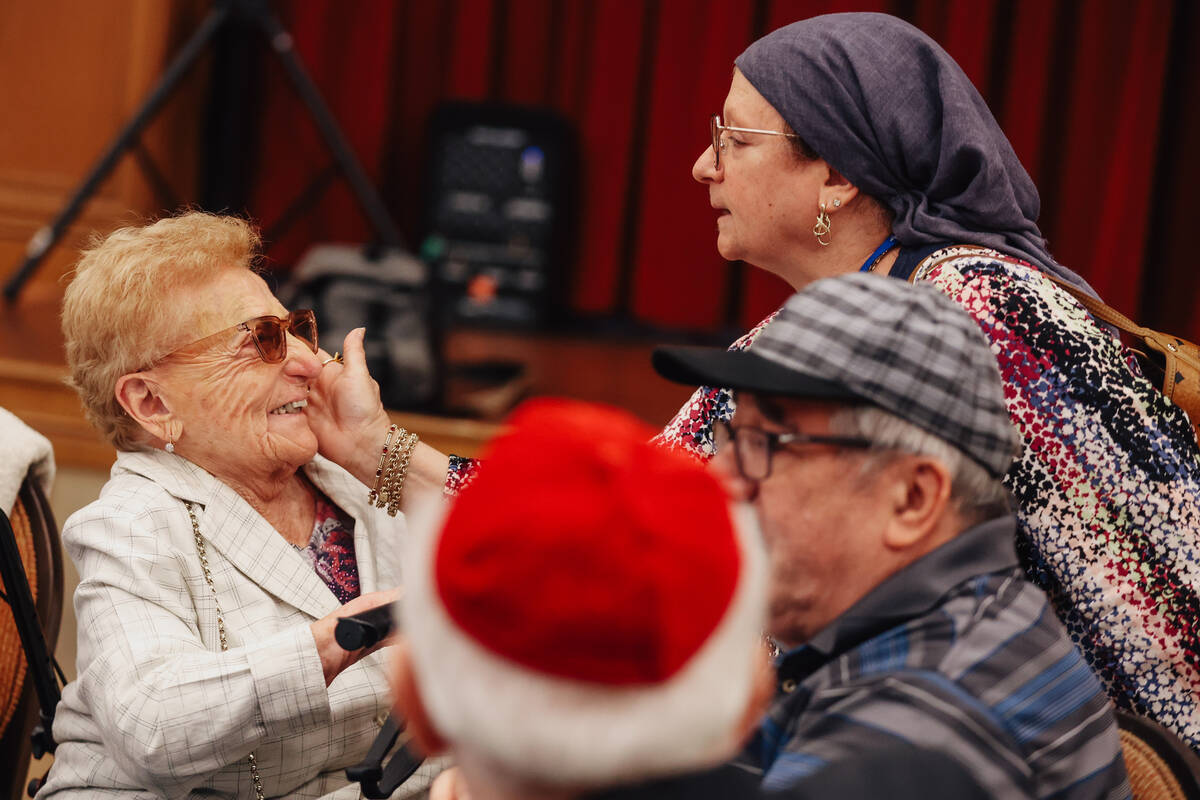Holocaust survivors’ stories preserved through AI

Hana Ivashkov has told the tale of escaping Lithuania several times, but as she recounted it on Sunday, she said she could still feel chills on her arms.
Ivashkov, 96, was 11 years old when she rode what she said was the last train from Lithuania to Russia in 1941. Her train was bombed by German soldiers and her family walked for over 10 days to reach Russia. After stops in Serbia and Kazakhstan and an eventual return to Lithuania after World War II, Ivashkov arrived in Las Vegas in 1980.
“I’m talking to let people know,” Ivashkov said as she sat at a table at Congregation Ner Tamid in Henderson on Sunday, where she was one of 20 Holocaust survivors encouraged to share their stories to younger generations.
The event was to commemorate Yom HaShoah, the day the Jewish community memorializes Holocaust victims, which was marked this year from Wednesday evening to Thursday nightfall. Afterward, Holocaust educator Stephen Smith had a conversation with a hologram of Pinchas Gutter, who survived the Holocaust. Smith hopes that through using artificial intelligence, future generations will be able to have conversations with holocaust survivors past their death.
“Each year, as we mark this day, we find ourselves one step farther from the events of the Holocaust — but also one step closer to a moment when no survivors will remain to tell the story themselves,” Rabbi Sanford Akselrad told the congregation.
Survivors’ testimonies
Jackie Beer, 85, kept her story quiet for years. It wasn’t until a few years ago that she was finally moved to share it.
“Nobody should ever forget. We’re it. We’re the last generation,” Beer said.
Beer was born in Ukraine to a mother who was murdered eight months later. She was raised in five orphanages and came to Las Vegas when she was 11 years old. She later worked as a dancer on the Strip, where she said she was one of two Jewish dancers at the time.
These days, Beer wears her Star of David necklace proudly. But sometimes, she said, she hides it beneath her clothing and clips it closer to her heart.
“I don’t want to cause trouble,” she said.
The number of antisemitic assaults, acts of vandalism and campus-related incidents in Nevada increased in 2024, according to a recent audit from the Anti-Defamation League.
In February, the American Jewish Committee published a report that it said showed an “alarming” increase in antisemitism.
AI’s role in remembering
Sunday’s event closed with Smith’s presentation about the use of artificial intelligence to facilitate conversations with Holocaust survivors, even after their death.
The project was conceived of by Smith’s wife, Heather Maio, who wanted her grandchildren to be able to have the same type of personal conversation with Holocaust survivors that she was able to have.
“I am most hopeful that the world is going to be a better place than the one I lived in,” Gutter’s hologram told the congregation.
Contact Katie Futterman at kfutterman@reviewjournal.com. Follow @ktfutts on X and @katiefutterman.bsky.social.